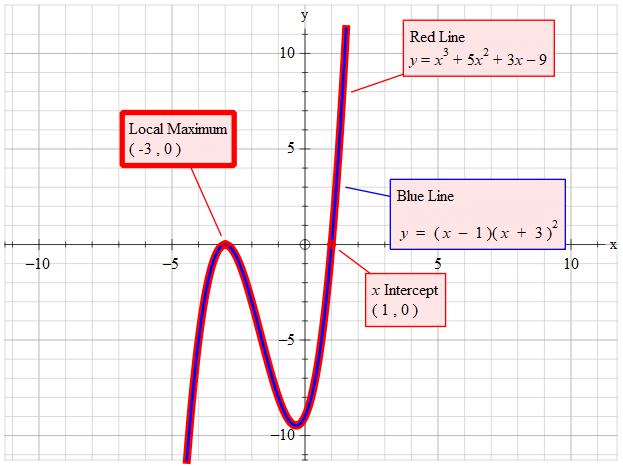Whole number factors of 9 are #3^2 and 1xx9#
Lets test for #x=+1#
#(+1)^3+5(+1)^2+3(+1)-9#
#color(white)("dd")1color(white)("dd.")+color(white)("dd")5color(white)("dd.d")+color(white)("dd")3color(white)("dd.")-9=0# as required
So we have #(x-1)# as a factor.
To determine the related quadratic divide by #(x-1)#
#(x^3+5x^2+3x-9)/(x-1)=0=" some quadratic"#
The coefficients for #x^3+5x^2+3x-9color(white)("dd")->color(white)("dd")1,5,3,-9#
#color(white)("d")1|1color(white)("d")5color(white)("d")3color(white)("d")-9 color(white)("d")larr" The coefficients"#
#color(white)("dd.")ul(|darr1color(white)("d")6color(white)("ddd.")9)#
#color(white)("dddd")1 color(white)("d") 6color(white)("d")9color(white)("ddd")0color(white)("d")->color(white)("d")1x^2+6x+9#
So we have:
#(x-1)(x^2+6x+9)=0#
Note that #3xx3=9 and 3+3=6#
#(x-1)(x+3)^2=0#



